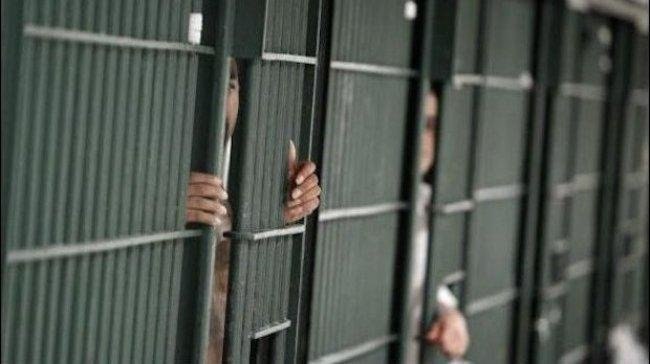
Human rights sources revealed a deterioration in the health of a prisoner of conscience in the Saudi prisons, Walid Abu Al-Khair, who is on hunger strike for the sixth consecutive day.
The Saudi authorities met Abu al-Khair’s strike by ignoring his claim, as well as imposing arbitrary measures against him, including medically neglecting, isolating, and assaulting him in order to end his strike.
Abu al-Khair is hit after he was subjected to several penalties during the past days, including penalties in the sun, withdrawing his books, raiding him at night, and withdrawing his bed without knowing the reasons.
Also, the Saudi authorities transferred Abu al-Khair to strict guards without knowing the reasons, since last Tuesday 26 November.
The Saudi authorities continue to violate the laws they established through the arbitrary arrests of societal national elites, and hundreds of people because of these violations are still behind bars for no reason.
The Saudi authorities continue to practice torture against a number of reformers detained in prisons and use the most severe forms of physical and psychological torture against them.
The Human Rights Organization asserted that the authorities of Saudi are subject to dozens of prisoners of conscience to strict tightening in prisons, either by incommunicado detention for extended and long periods, or by continuous transfers and denial of contact for periods, and repeated penalties, in addition to withdrawing books and medicines.
In a statement, the organization stated that torture is practiced either in the basement of torture in houses equipped for that and away from official prisons, or inside the prisons themselves.
She pointed out that a number of unpopular tweeters are still in the cellars of the equipped torture, in which human rights activists were previously tortured, such as “Nassima Al-Sada” and “Lujain Al-Hathloul”.
“Al-Qastas” added that “Lujain” and Nassima “are suffering from solitary confinement for extended and long periods, while the rest of the detainees are subjected to continuous transfers and deprivation of contact for periods, and repeated punishments inside the prisons, including” Abdullah Al-Hamid “,” Muhammad Fahad Al-Qahtani “and” Fawzan Al-Harbi “, And “Abdulaziz Al-Shabaili”, “Issa Al-Nukhaifi” and “Walid Abu Al-Khair”.
The Saudi authorities transferred some of the detainees to the so-called “high security building”, where they were beaten by the so-called “law enforcement forces”, indicating that they would publish information about this building and these forces in a later report.
The statement stressed that the Saudi authorities did not fulfill their previous pledges regarding the investigation of brutal torture and sexual harassment to which “Iman Al-Nafjan”, “Abeer Al-Namankani”, “Aziza Al-Youssef”, “Lujain Al-Hathloul”, “Samar Badawi” and “Nouf Abdulaziz Al-Jerawi” Maya Al-Zahrani, Shaddan Al-Anzi, Hatoon Al-Fassi, Maysa Al-Mane ’, Ali Hamza Al-Omari, Muhammad Al-Bajadi, Yasser Al-Ayyaf and Aida Al-Ghamdi.
And Al-Qastat added: “Lujain Al-Hathloul and Nassima Al-Sada are still in solitary confinement. Nouf Abdulaziz Al-Jerawi, Miya Al-Zahrani and Samar Badawi are still in prison, while those who were temporarily released from their jobs and studies are prevented, and the authorities did not abide by what they promised at times Repeatedly from the release, the closure of the case and compensation for the injured, and still continuing violations.”
The human rights organization believes that the Saudi authorities continue to violate these violations due to “local and global silence, the money paid by the advertising and promotion campaigns for the leadership, and attempts to cover violations by sports and events supported by a number of businessmen, politicians and sportsmen around the world without regard to the deteriorating human rights situation, and the risks posed Society as a result of this severe repression.”
“Al-Qastas” called on all local and international parties to assume their responsibilities not to participate in covering the violations of the Kingdom’s political, media or sports, and to boycott Saudi activities in order to put real pressure on Riyadh, forcing it to respect human rights.